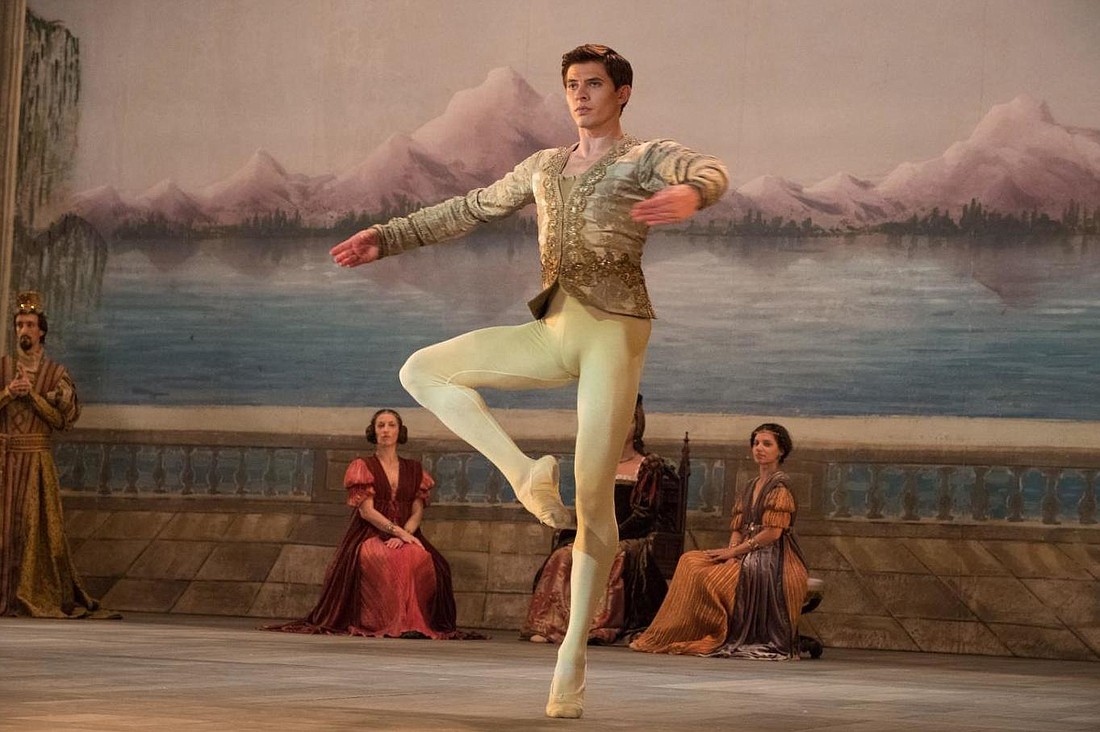- April 17, 2024
-
-
Loading

Loading

"The White Crow" is the story of renown Russian ballet dancer Rudolph Nureyev. From his birth in 1938 to his defection in 1961, director Ralph Fiennes tries to define what made him tick. But it's a less-than-stellar attempt.
Before the first scene in the film we learn that the title is a Russian reference used to describe someone who is unusual and extraordinary. We are then privy to an interrogation of Alexander Pushkin (Ralph Fiennes), Nureyev's (Oleg Ivenko) mentor, who characterizes the ballet dancer's sudden defection as "an explosion of character."
These are two insightful observations into the multi-faceted artist's psyche. Set during the Cold War, the film follows Rudy and the Kirov Troupe to Croatia, Serbia and France. While in Paris, he deeply immerses himself into analyzing the human anatomy via museum paintings and sculptures. He also develops a close relationship with socialite Clara Saint (Adele Exarchopoulos). All of which is done under the watchful eye of the KBG.
The film bounces around in time through the use of monochromatic flashbacks, somewhat incoherently. But eventually we arrive at the conclusion that Rudy is one ungrateful, arrogant narcissist with a chip on his shoulder. He turns on those who have been kind to him, even to the point of having an affair with Pushkin's wife right under his nose.
In a bold move, Fiennes chose Ivenko, a Ukrainian ballet star to portray Nureyev. Never having acted before, he manages to deliver a quite credible performance. In this, his third venture behind the camera ("Coriolanus" "The Invisoble Woman"), Fiennes relies on a so-so script by David Hare, which could have been brilliant in the right hands. In the end we're left not feeling much of anything for Fienne's Nureyev because he's bereft of character in the film.
"The White Crow" is, at times, beautiful to watch. The camerawork is impressive as it captures some exhilarating performances and breathtaking European locales. And if you remain for the closing credits, you'll catch astonishing clips of Nureyev's dancing.